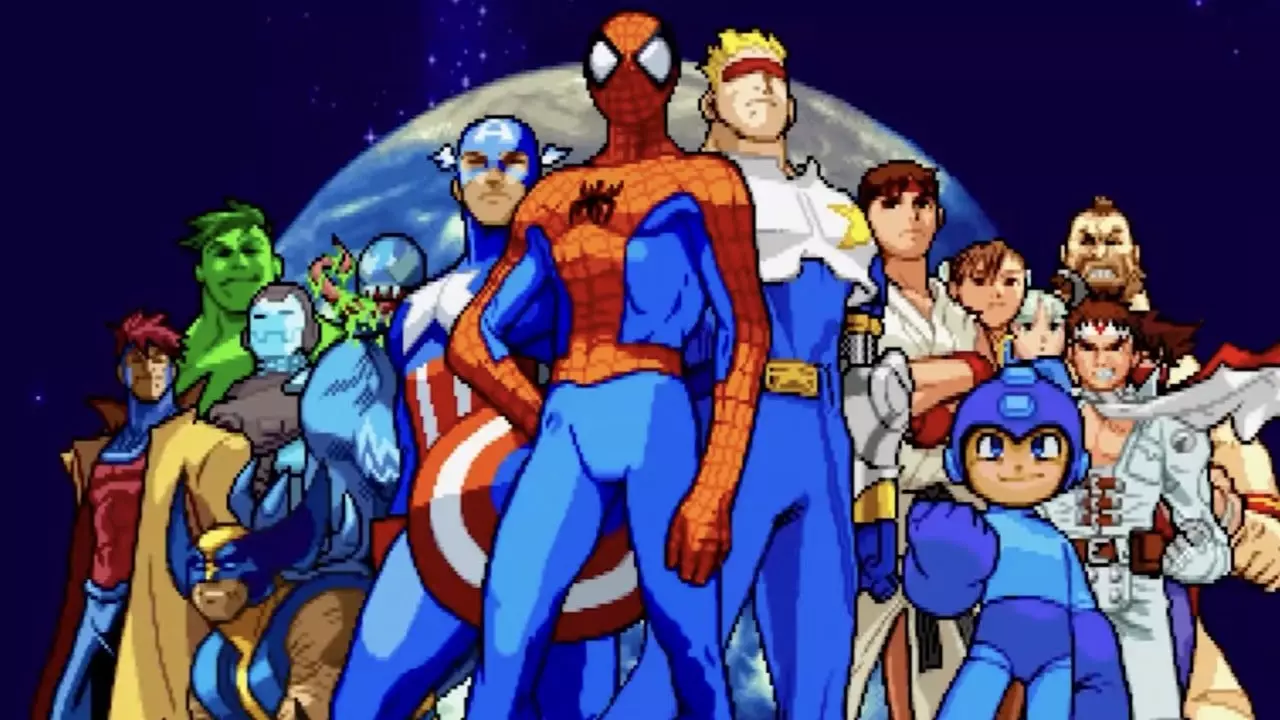The gaming community is buzzing with excitement following the recent debut of the Marvel vs. Capcom Fighting Collection across multiple platforms, including the Nintendo Switch. This nostalgic compilation brings together classic titles that many gamers hold dear, revitalizing interest in a franchise that has captivated audiences since the 1990s. With its arrival comes a sense of hope and renewal, sparked by the willingness of its producers to consider the possibility of new entries in the beloved fighting series.
Shuhei Matsumoto, the producer behind the Fighting Collection, has been quite vocal about his desire to see the Marvel vs. Capcom series return with fresh installments. In an interview with Comicbook.com, he passionately urged fans to rally support for the franchise. “Who wouldn’t want to release a new installment of the series?” he questioned, signifying that the drive for a new game is not just a corporate ambition but a collective dream shared by fans and developers alike. Matsumoto emphasized that while commercial success is important, the true power lies in the unwavering support from the gaming community, highlighting a crucial aspect of modern game development: fan engagement.
Matsumoto’s remarks underline a profound truth in game creation: dedicated fans can significantly influence a project’s viability. Capcom, with its rich history of fighting games, recognizes that fan enthusiasm could provide the momentum needed to push forward new developments. The interplay between developer vision and community support has never been more critical, especially in an era where gaming companies often rely on established franchises to maximize profitability. Engaging with fans not only strengthens a brand but also cultivates a passionate community willing to advocate for their favorite games.
A Promising Outlook for Legacy Games
Alongside the success of the Fighting Collection, Capcom has expressed interest in reviving its legacy fighting titles. This sets a promising precedent for the future of classic franchises, indicating that more opportunities for retro favorites might arise. Recent announcements, such as the inclusion of titles from the Power Stone series in the upcoming Capcom Fighting Collection 2, demonstrate a commitment to preserving and reintroducing beloved games to new audiences. This approach not only pays homage to the past but also expands the potential for future projects.
As the excitement builds around the Marvel vs. Capcom franchise, the call to action for fans has never been more crucial. Whether on social media, through fan events, or by simply enjoying the existing titles, enthusiasm from the community could pave the way for a new chapter in the series. The desire expressed by Matsumoto and his team reflects the spirit of collaboration necessary to breathe life into a franchise that has been a cornerstone of fighting games. The future looks bright for Marvel vs. Capcom, with fans holding the key to its revival.

